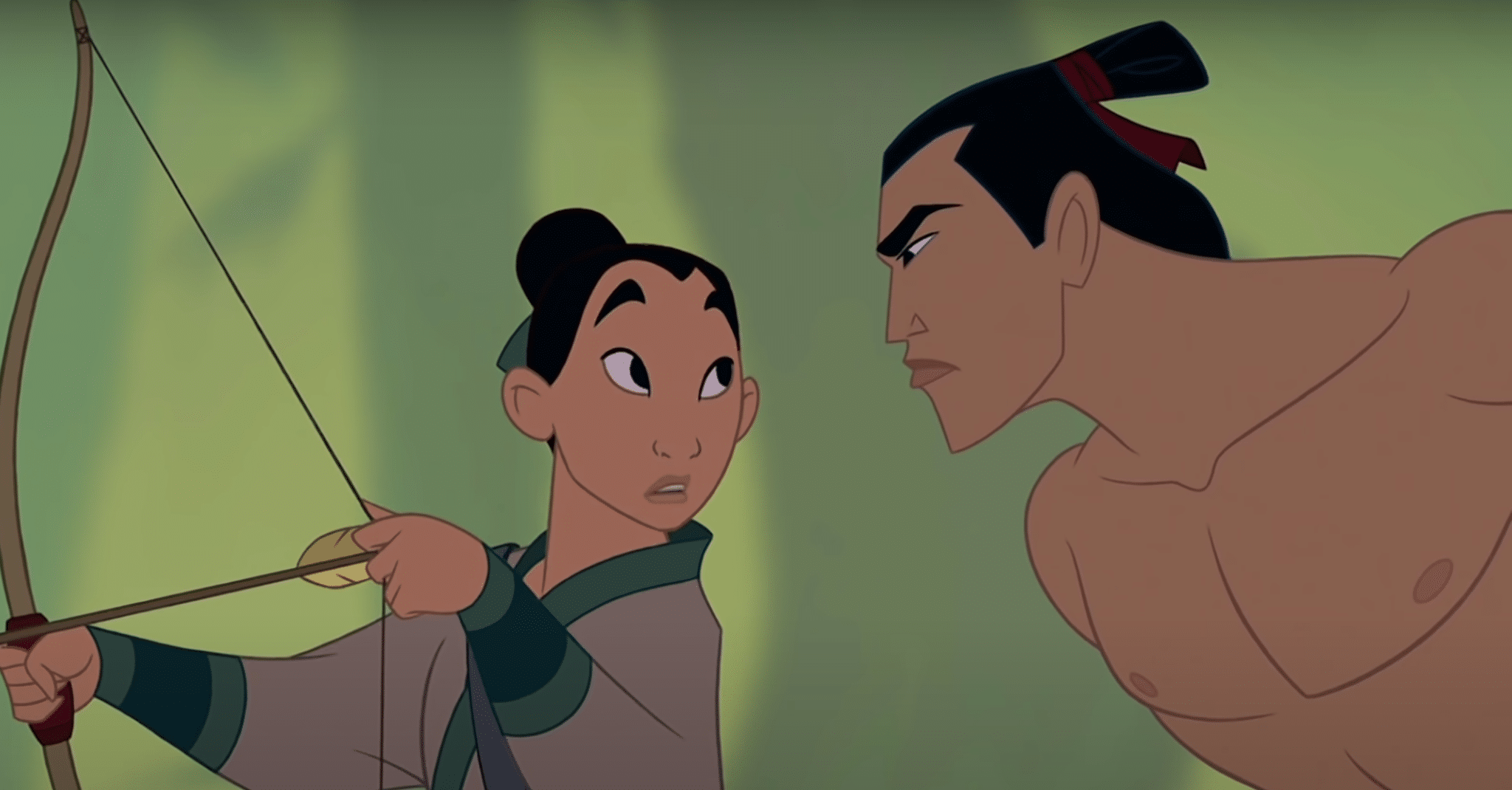In celebration of Pride Month, BuzzFeed writer Jake Farrington has declared that the Disney princess Mulan from the eponymous 1998 animated Disney film is a “nonbinary icon” who is “representing for the demisexuals.” Moreover, her romantic interest and future husband, the general Li Shang, is omnisexual.
So, what on Earth does all of this mean? The most updated definition of “nonbinary,” per the Washington Post, is a person who does not identify exclusively as male or female. A June Pew Research Center survey found that 5 percent of Americans under age 30 identify as nonbinary or transgender. The rationale for Mulan’s nonbinary identity, Farrington contends, is that the beloved Disney character dresses up as a man to take her ailing father’s place in the Chinese Imperial Army.
The term “demisexual” garnered increased attention after disgraced former New York Gov. Andrew Cuomo’s daughter came out with that identity. Michaela Kennedy-Cuomo first said she was bisexual. Then she said she was pansexual. Then she said she was queer. Then she said she was demisexual. According to Business Insider, a person who identifies as demisexual needs to develop an emotional bond with a person before they can become sexually attracted to them.
The rationale for Mulan being demisexual is that she and Li Shang became a couple after they got to know each other.
Mulan, Farrington says, is “representing for the demisexuals, those who only find themselves attracted to people once they’ve formed a close emotional bond. Is that not exactly what happened out there when they were fighting the Huns with Li Shang?? Give the movie another watch and tell me this isn’t the case!” (If you’re confused by the plural personal pronoun referring to Mulan, her pronouns are apparently now “they/them.”)
Li Shang, the masculine general who leads his forces against the Hun, is supposedly omnisexual.
The “LGBTQIA+ Wiki” defines omnisexual as “the sexual attraction to people of all sexes and gender identities, wherein gender plays a role in one’s attraction.” Apparently that diverges from pansexual, which is “the sexual attraction toward people regardless of their sex or gender identity,” and bisexual, which is “attraction to two or more genders on the gender spectrum,” according to the same source.
Farrington reasons: “Shang was not deterred from developing feelings for Mulan when they were posing as a boy, and then continued having feelings for them when Mulan was posing as a woman.”

Mulan and Li Shang during the song “I’ll Make a Man Out of You.“ (Disney/YouTube)
One commenter, however, disagreed with the author’s assessment of Shang’s sexuality. “He could be omnisexual (attracted to all genders with preferences) but I disagree with the reasoning,” the person said. “Bisexual means attracted to two or more genders, so he could still be bi. He could also be pan or poly.” (Polysexual is “the sexual attraction to various, but not necessarily all, genders,” according to the definitive source of the LGBTQIA+ Wiki.)
Someone else was also upset that Shang was not classified as bisexual. “Bisexuality is literally attraction regardless of gender,” the commenter said. “The bi refers to either same sex or different sex relationships. It has nothing to do with being interested in 2 genders. Sex ≠ gender. The idea that bisexuals care about gender and aren’t interested in non-binary people is from decades old biphobia.”
While LGBTQ activists are busy retroactively applying a panoply of sexual labels to childhood characters, Disney executives are devising characters with explicit LGBTQ identities.
Karey Burke, the president of Disney’s General Entertainment Content, said in March that Disney plans to make at least 50 percent of its characters come from “underrepresented groups,” such as the “LGBTQ community” and racial minorities, by the end of 2022.
“I’m here as a mother of two queer children, actually,” Burke said. “One transgender child and one pansexual child, and also as a leader.”
Burke contended that Disney has “many, many, many, LGBTQIA characters,” but she argued that the entertainment company does not have “enough leads and narratives in which gay characters just get to be characters.”
Executive producer Latoya Raveneau said at the same meeting that Disney has a “not-at-all-secret gay agenda” and that it is working on “adding queerness” to more shows for children.
The Disney film Lightyear, a spinoff of Toy Story which was released last week, features a black lesbian woman who kisses another woman onscreen, leading at least 13 countries to block the release of the film. At another point, the lesbian character is pregnant, but it’s unclear who the father is. It’s been reported that the kiss was initially removed from the film before it was restored after backlash from LGBTQ activists within the company. So far, the film’s box-office success has been underwhelming.
Other recent LGBTQ Disney characters include a lesbian couple in 2016’s Finding Dory, a lesbian couple in 2019’s Toy Story 4, and a lesbian kiss thrown into 2019’s Star Wars: The Rise of Skywalker.
In March, Disney’s CEO, Bob Chapek, condemned Disney’s “Parental Rights in Education bill,” which says that classroom instruction on sexual orientation or gender identity in kindergarten through third-grade classrooms should not occur in a “manner that is not age appropriate for developmentally appropriate.” That ignited a conservative backlash to the company’s aims to teach LGBTQ ideology to children.
The attempt to make Mulan a nonbinary demisexual would be laughable were it not part of this coordinated campaign to use children’s entertainment to dismantle the principle that families should be built on a husband, wife, and their children as well as the truth that each person is either male or female.
